COI Network Partners
The COI Network comprised of 18 non-governmental and governmental organisations from 15 EU member and candidate states. It was coordinated by ACCORD.

|
ACCEM is a national NGO whose origins go back to 1951. Its principal mission is to promote the integration of refugees and immigrants in the Spanish society and to promote an intercultural society based on respecting human rights. With that aim, ACCEM covers a multiplicity of areas. Its target groups are not only immigrants, asylum seekers, refugees and displaced persons, but also the welcome society. Programs of ACCEM include Information and Guidance; Interpretation and Translation; Legal Advice; Psychological Services; Social Support; Social and Labour Integration; Emergency Aid; Social, Volunteer and Language Training; Family Reunification; Voluntary Return; Resettlement; Reception Centres for Refugees and Immigrants; Unaccompanied Minors; Ethnic Minorities and Social Emergency; Centre of Information, Resources and Documentation on Asylum and Migration; Social Awareness and Mobilisation (Observatories). At present, ACCEM works in most of the Spanish Autonomous Communities. It is member of different national and international networks.
|
|
ACCORD (Austrian Centre for Country of Origin and Asylum Research and Documentation) was established in March 1999 and is part of the Austrian Red Cross. ACCORD provides case related query responses to all parties involved in RSD procedures, COI training and, together with European partner organisations, the online information system www.ecoi.net.
Its staff of political and social scientists and lawyers ensures high quality COI research. ACCORD cooperates with the Federal Austrian Asylum Agency and NGOs and is integrated in European networks.
ACCORD is co-financed by the European Refugee Fund, the Austrian Ministry of the Interior, UNHCR and Austrian NGOs.
|

|
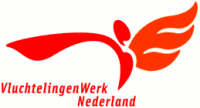
|
The Dutch Council for Refugees is an independent, broadly based professional organisation. Based on the Universal Declaration of Human Rights, it works to protect asylum seekers and refugees. This work is mainly done by its many volunteers and entails personal support and the protection of refugees' interests during admission, reception and social participation, primarily in the Netherlands.
DCR promotes the interests of refugees and asylum seekers. She provides guidance during the asylum procedure and in the municipality. She also provides information about the position of refugees and tries to remove prejudices. DCR not only advocates a fair asylum procedure; she also works hard to ensure that refugees will be fully integrated into the Dutch society. This means that they have to have the right to full legal status, adequate housing, education, training, health care and work.
|
|
Forum Réfugiés is a non-governmental organisation (NGO) created in 1982 in Lyon. It is specialised in the reception of asylum seekers and refugees and in the promotion of a fair and humane asylum policy. Its members are both individuals and organisations (e.g.: Caritas; Cimade…) which decided to entrust it with a specific role in that field. Forum Réfugiés is today acknowledged as a recognised spokesperson by many public authorities (Ministries, European Commission, Council of Europe, Prefecture, UNHCR, local authorities…) and other associations and individuals.
In 2005, the staff consisted of around 100 people. Its activities range from legal advice to management of several reception centres.
|

|
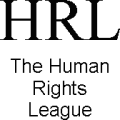
|
Human Rights League
The Human Rights League is a Slovak non-governmental, non-profit organisation founded in April 2005. HRL provides free legal services for asylum seekers and recognised refugees. It cooperates closely with UNHCR and is independent from the Slovak government. Lawyers working for HRL regularly visit various refugee camps and a detention centre in order to provide legal assistance to asylum seekers accommodated in these camps – they answer all queries regarding the asylum procedure and other ways of legally staying in Slovakia, help to write appeals against decisions received by asylum seekers and help asylum seekers to defend their rights. Lawyers also accompany asylum seekers to interviews at the Migration Office and to the court. HRL takes part in the monitoring at Bratislava airport to assure that police officers respect the rights of foreigners asking for asylum in the airport’s transit area. HRL is also responsible for the education of law students of the Asylum Clinic at the Faculty of Law of Trnava University. HRL is financed by UNHCR, Open Society Foundation and ERF grants and donations from individuals.
|
|
The Hungarian Helsinki Committee monitors the enforcement of human rights enshrined in international human rights instruments in Hungary, provides legal defence to victims of human rights abuses by state authorities and informs the public about rights violations. The HHC strives to ensure that domestic legislation guarantees the consistent implementation of human rights norms. The HHC promotes legal education and training in fields relevant to its activities, both in Hungary and abroad. The HHC's main areas of activities are centred on protecting the rights of asylum seekers and foreigners in need of international protection, as well as monitoring the human rights performance of law enforcement agencies and the judicial system. It particularly focuses on the conditions of detention and the effective enforcement of the right to defence and equality before the law.
|

|

|
Informationsverbund Asyl's task is the documentation and dissemination of relevant information for all asylum practitioners. For this purpose InfoVerbund issues its Asylmagazin (10 magazines p.a.) and maintains its homepage
www.asyl.net which also features a case law database. In addition, InfoVerbund is publisher of several booklets on asylum matters and a partner of the European country of origin information network (ecoi.net).
InfoVerbund Asyl came into existence in 1999 as successor of the "ZDWF"documentation centre run by the central welfare organisations (Arbeiterwohlfahrt, Deutscher Caritasverband, Deutsches Rotes Kreuz, Diakonisches Werk der EKD, Paritätischer Wohlfahrtsverband and the Zentralwohlfahrtsstelle der Juden in Deutschland.) When forming InfoVerbund Asyl, the central welfare organisations were joined by the German section of amnesty international and by Pro Asyl. Furthermore, InfoVerbund Asyl is a cooperation partner of UNHCR.
|
|
The Italian Council for Refugees (CIR) is an independent humanitarian organisation. It was founded in 1990 under patronage of the United Nations High Commissioner for Refugees (UNHCR). The aim of CIR is to co-ordinate and develop actions for the defence of the rights of refugees and asylum applicants in Italy. CIR provides protection and legal and social help to refugees and asylum seekers. Other activities of CIR include lobbying at the parliament and the government, sensibilisation and information of Italians concerning the situation of refugees and constant training courses and seminars.
|

|
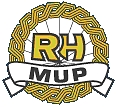
|
The Ministry of the Interior of Croatia deals with administrative and other tasks, especially policing and criminal police activities, maintaining of public order, conducting of technical crime investigations and expert analysis, road traffic safety, safeguarding at public gatherings, nationality affairs, issuing of driving licences and the registration of motor vehicles, procurement, keeping and carrying of weapons and ammunition, explosive devices and substances and protection of the constitutional order.
Foreigner and asylum relevant activities include state border protection, movement and stay of aliens and their admission, travel documents for crossing the state border, issuing of identity cards and the registration of residence and sojourn.
|
|
The Asylum Section of the Ministry of the Interior of Slovenia prepares draft laws, executive regulations and other relevant regulations, participates in the work of expert bodies of governmental and non-governmental organisations and cooperates with non-governmental organisations for human rights. It participates in the preparation of and delivers opinions on draft international treaties and inter-state agreements, participates in the preparation and implementation of the state policy in the area of asylum and in the work of the working bodies of the EU and Council of Europe in the area of asylum. Furthermore, it cooperates with international organisations, especially UNHCR and international organisations operating in the area of asylum and human rights (IOM, ICMPD, etc.). It coordinates the work of non-governmental organisations in the area of asylum, fulfils obligations arising from the EURODAC Directive, conducts the so-called Dublin procedures, acquires and gathers information on circumstances in the countries of origin of asylum seekers, prepares standards in the area of accommodation and care for asylum seekers, prepares projects in the area of asylum for securing from European funds and cooperates with the police in procedures for the removal of rejected asylum seekers.
|

|

|
The Subdirección General de Asilo of the Ministry of the Interior of Spain is concerned with various issues relating to asylum and refuge, including the coordination of the preparation of proposals of ministerial departments concerned with asylum, statelessness and displacement. Furthermore, the Subdirección General de Asilo presides over the inter-ministerial Commission of Asylum and Refuge, coordinates the administrative performance of Delegations and Subdelegations of the Government in questions related to the right of asylum and other forms of protection and participates in meetings of national, international or supranational bodies concerned with the right of asylum and other forms of protection.
|
|
The Office of Citizenship and Migration Affairs is a supervisory body of the Ministry of Interior of the Republic of Latvia responsible for issuing of identity documents and travel documents, maintenance of the Population Register, implementation of state migration policies, including the development and implementation of a repatriation and asylum policy. As a modern state governance authority, the Office of Citizenship and Migration Affairs sets its priority to be a simple, foreseeable and understandable co-operation with the population, therefore the Office has started to ensure that the population receives services of the highest quality, as well as to create a double-check, convenient and safe system for identity documents, and to developm a new residence registration system.
|

|
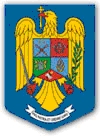
|
The National Refugee Office is the main authority for the implementation of the Romanian policies on asylum matters. It is organised and operating such as to ensure sustainable and reliable activities in the area of asylum. NRO’s main duties refer to receiving and processing asylum applications within the administrative phase of RSD, ensuring access to medical and material assistance to asylum seekers, including their accommodation in facilities administrated by NRO, registering of persons seeking for asylum and of asylum seekers who were granted a form of protection, the coordination of activities related to the integration in Romanian society of those who were granted a form of protection and the implementation of Romanian policies in the field of asylum.
|
|
The Office for Repatriation and Aliens is an independent governmental body separated from the Ministry of Interior. It is headed by a President, Piotr Stachanczyk. The Office for Repatriation and Aliens deals with the following matters: Refugee, asylum and subsidiary protection proceedings, including gathering and rendering country of origin information and Dublin cases, refugee camp management and social assistance for asylum seekers, issuance of visas, residence stay permits, temporary stay permits and others (2nd instance), enter and stay of citizens of EU countries, repatriation proceedings, citizenship issues, management of a system of registration of aliens and international relations.
|
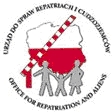
|

|
The Helsinki Foundation for Human Rights, based in Warsaw, was established in 1989. Its creation was preceded by seven years of activity of the Helsinki Committee in Poland, which has operated as an underground movement since 1982. Following the transformation of Poland’s political system in 1989, the Committee’s members decided to come out into the open and establish an independent foundation, which was to carry out educational and research related activities in the field of human rights. Currently, the Helsinki Foundation for Human Rights is one of the most experienced and professional non-government organisations active in the field of human rights in Europe. Its main areas of activity are domestic education in the scope of human rights, international activity and public interest actions.
|
|
The Refugee Documentation Centre is an independent Library service which is provided under the aegis of the Legal Aid Board. The role of the Refugee Documentation Centre is to maintain a collection of objective and up to date Country of Origin Information and asylum, immigration, legal and human rights documentation. Most particularly the Centre will serve the needs of the UNHCR, RLS, RAC, RAT, MDU, Repatriation Unit and Department of Justice Equality and Law Reform, as well as members of the public and other agencies. The Refugee Documentation Centre is staffed by a Senior Librarian Manager, a Librarian a Higher Executire Officer and a research team of three Executive Officers, Two Legal Clerks, two Law Clerks and 7 Clerical Officers.
|

|
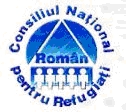
|
The Romanian National Council for Refugees (CNRR) is a non-governmental organisation established in 1998. It is the main refugee assisting NGO in Romania, working in close partnership with the United Nations High Commissioner for Refugees Representation in Romania. Its mission is to protect and promote the human rights in general and the rights of refugees and asylum-seekers in particular by all legal means. CNRR’s specific objectives are to protect the right to asylum and the exercise of that right during the refugee status determination and also to facilitate the integration of refugees in the Romanian society. Therefore, CNRR provides free social assistance as well as legal and medical counselling through its legal, social and medical departments.
|
|
SOZE is a non-governmental, non-profit organisation. Its aim is to assist refugees, as well as other aliens coming to the Czech Republic. The support consists of free of charge legal, social and psychological counselling, direct material help and organising of free time and educational activities for refugees during the challenging process of integration into the Czech society. SOZE works in a long-term close co-operation with the Office of the United Nations High Commissioner for Refugees (UNHCR). In compliance with international legal documents, SOZE tries to ensure at least minimum standards of asylum procedures. It seeks permanent acceptable solutions for individuals, families, as well as refugee communities, either by fully integrating them into the Czech society, or by voluntaryly repatriating them into their country of origin.
|

|
last update 12 November 2007
|




















